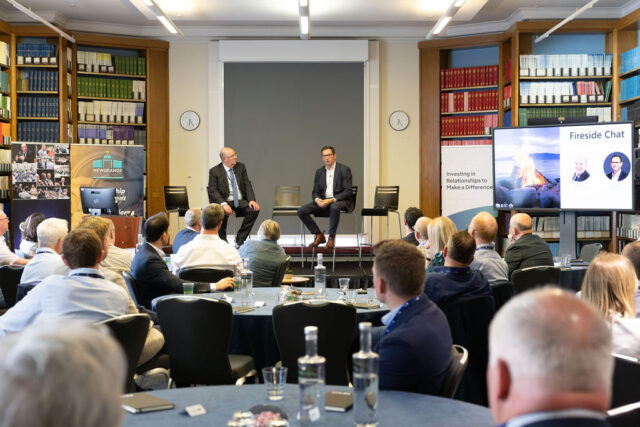
Insight Life Science
The tariff trap: navigating US trade risks in life sciences
May 21st 2025
For UK life science and medtech companies eyeing the US market, tariffs and trade policy may feel like a distant concern, until they’re not.
At a recent CXO event held at the Royal Society of Medicine, a panel of experts tackled the growing uncertainty around US tariff policy and its potential impact on cross-border market expansion.
Their conclusion? The tariff conversation isn’t just political theatre, it’s a practical risk that companies need to address head-on.
Policy in Flux
President Trump’s renewed push for tariffs has created a climate of unpredictability. Signals around trade intentions shift frequently, making it difficult for international businesses to plan with confidence. As Chair Geoff Dobson asked, are tariffs “short-term a political sideshow, or the beginning of a significant shift away from a pattern of transatlantic or globalization in trade?”
While it’s too early to predict the outcome, the consensus was that companies must be prepared for a range of scenarios.

“Are tariffs short-term a political sideshow, or the beginning of a significant shift away from a pattern of transatlantic or globalization in trade?”
Supply Chain Complexity
Life science supply chains are global and fragile. Even if manufacturing and final assembly are US-based, many critical components, such as APIs or genomics software, are sourced internationally. As the report noted, “the tariff debate has not yet fully addressed the complexity of supply chains.”
Companies relying on Chinese services are already feeling the effects of shifting trade policies, pushing some research and software functions back toward the UK and Europe.
“The tariff debate has not yet fully addressed the complexity of supply chains.”
Regulatory Ripple Effects
Trade tensions could also slow regulatory processes. With staffing challenges at the FDA and growing political pressure, companies may need to build in extra time for approvals. The panel advised adjusting timelines to allow for “possible delays due to uncertainties in FDA policy and/or staffing.”

Be Proactive, Not Reactive
Despite the risks, US market entry is still viewed as highly attractive. “The market is large and homogeneous,” and American healthcare spending remains the highest globally. Yet, the message is clear: don’t be caught off guard.
Companies should scenario-plan, diversify supply chains, and stay ahead of regulatory developments. As one panellist put it, firms are learning to “become more comfortable about feeling uncomfortable.”
In a world of shifting policies and geopolitical volatility, preparation, not panic, is key.
“Firms are learning to become more comfortable about feeling uncomfortable.”
Are you seeking a trusted partner to support your executive search in Life Sciences?
We bring decades of executive search experience and a proven track record of success across our dedicated sectors. Our investor clients rely on us time and again to build exceptional leadership teams that drive growth and deliver results.









